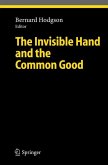This book explores how moral factors exert influence on economy from an economic and philosophical point of view. The book takes an in-depth look at topics such as efficiency and coordination, fairness and identification, law and self-discipline and the third distribution, which have long been the focus of public attention. As expounded in this book, in places where regulation by market or government does work, there are still some gaps that the two modes of regulation cannot reach owing to the limitations of their influence. Each does compensate for the other's limitations, but only up to a point. The gap can only be filled by custom and morality. In this sense, regulation by custom and morality can be viewed as a regulatory mode beyond market and government. In a market economy, market regulation of resource allocation as a basic mode can be called "primary regulation" and government regulation, as a high-level mode, "secondary regulation." Regulation that relies on the force of custom and morality, a regulation beyond market and government, can be called "the third regulation." A variety of causes can give rise to market failure or government paralysis, rendering regulation by market or government ineffective or extremely limited. But even in such circumstances, custom and morality still exist and continue working as normal. What affects resource allocation, socio-economic operations and living standards is not just the power of market or government, but that of custom and morality. This book is one of the three published writings that best reflect Professor Li Yining's academic standpoint. Although written in economic language, the book also incorporates sociology, history and philosophy and will help the reader make better judgment calls in the face of changing market conditions and economic policies.
Bitte wählen Sie Ihr Anliegen aus.
Rechnungen
Retourenschein anfordern
Bestellstatus
Storno








